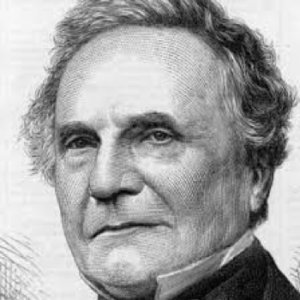
Quantum
Whenever a phrase with the word ‘quantum’ pops up in a conversation, you can be guaranteed that someone in the room will sigh, stare at you with a blank expression of total resignation and ask you to explain what it is.
If you’re a physicist, the task should be an easy one. At least in principle, though it can be stated that scientists are not the best people to explain a theory to the uninitiated, the non-techie types. Your average Joe finds the theory, jargon and all the maths too much of a struggle. They switch off after a while — not because they’re idiots — but rather out of a forced resignation as to what they’re being told will never directly affect their lives, or more importantly, offer them something of either monetary or educational value.

That is why explaining these things in a clear, succinct and uncomplicated way, will be — and this is a guarantee — much more important in the coming years, especially because the age of quantum computers (QC) has arrived.
With the big corporations, venture capitalists, angel investors and anybody else out there interested in this new technology, there will be a demand for literature, white papers and other forms of content to explain all the intricacies of the science at hand, the difficulties in messaging the magical formulas, the nuances of ‘superposition’, ‘entanglement’ and ‘quantum tunnelling’. Without a basic knowledge of the mechanics of these wonderful phenomena and how they can add value in the future, no business in its right mind would want to invest.
Bringing More Onboard
That’s why, in part, thought leaders, business individuals, scientists with a populist bent are and will be needed at every level to make quantum computers and their potential a definite truth.
Bringing more creative minds on board who see, and can then advocate and popularize in simple language, what things QC can unlock for us a distance down the road is one of the challenges the space faces in the short term.
A new language is needed. A technical xylophone of words translating the unexplainable to that which is explainable.
Gaining advocates for QC from the world of classical computers is another challenge that if correctly done, can reap dividends for those already involved in it. These clever people, be them hardware or software engineers, full-stack programmers, specialists in a certain computer code, the marketing people, designers or CEOs, must see that what is coming is not a threat to their space, not even a competitor.
What QC adds to current technology is complementary by nature. For sure, quantum computers will be better at some tasks than others that classical models do at the moment, but in the main, they will work hand in hand to effectively improve the technological landscape. Hybrid models will be the de facto state, in a world where both models have a job to do in order to improve our lot.
History Lesson
Even today, in 2019, classical computer algorithms and programming is black magic to most people on the planet. The educational opportunities, as well as the literature available online and in bookshops, is too professional, too geeky and out of reach — intellectually speaking — to the masses. This could be, quite probably, why the computer age really didn’t start cooking with gas until the late 1930s with Turing, rather than a century or so before with Lovelace and Babbage: education, awareness and opportunity were the key.

What we need to do is accelerate things, not to go down the same road as we did with classical computers, where we hid it from view, created an elitist phalanx of ‘you can’t come in here unless you have a Ph.D. and your IQ is 300!’.
We need to open things up, let them out, simplify the processes in order to understand what quantum computing is and what it can be.
The academic rhetoric has got to go.
Already in the space, we can see companies and individuals who are bucking the trends, nurturing an environment in the quantum computing world that, if it goes to plan, will make the theory of it far easier to understand for far more people on the planet.
Case Studies
William Hurley, or whurley, co-founder of Strangeworks, Inc, and serial entrepreneur is already doing it with the Strangeworks Community Platform, a place for people to learn, discuss and develop their skills and knowledge on all things quantum computery.
Other companies, too, are following suit: Microsoft and its Q# quantum computer language. ProjectQ, from Switzerland, welcomes contributions from anyone to use their ‘powerful open-source software for quantum computing’. There’s D-Wave Systems and IBM, too.
As this form of cross-collaboration in the quantum computing sphere becomes the state of affairs, more people will use and understand it.
This can only be a good thing.
Long gone are the days when classical mainframe computers were locked away from the public in university labs, guarded by geriatric professors with stiff Germanic accents. The world of tech is opening itself up, showing its human side. This is, fortunately, just as quantum computers are starting to show their true capabilities.
Let’s humanize the whole process!
















